Vegan Diet: A Natural Remedy for High Blood Pressure/Hypertension
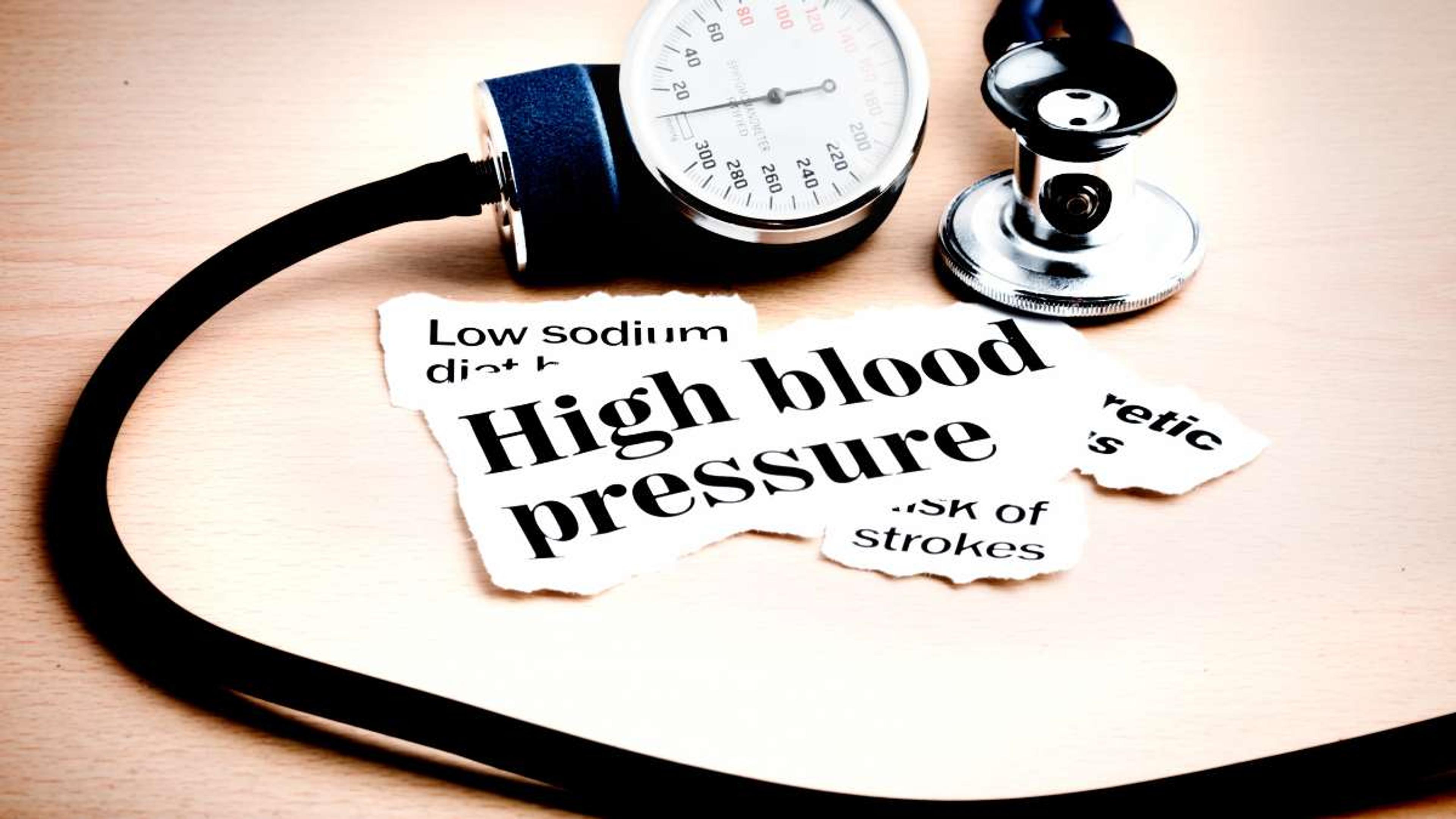
- Key Takeaways
- The Connection Between Diet and High Blood Pressure
- The Benefits of a Vegan Diet for High Blood Pressure
- The DASH Diet vs. a Vegan Diet for Blood Pressure Management
- Tips for Incorporating a Vegan Diet to Manage Blood Pressure
- Conclusion
- FAQs
Are you struggling to control your high blood pressure through diet? You're not alone - it's a common health challenge that over a billion people are facing worldwide. In this article, we delve into the potential benefits of a vegan diet for managing blood pressure levels based on credible scientific research.
Interestingly, did you know that vegans are 33% less likely to have high blood pressure than meat-eaters? Let's explore this exciting approach and how it can potentially revolutionize your journey towards better heart health!
Key Takeaways
- Vegan Advantage: Adopting a vegan diet can potentially reduce the risk of high blood pressure by 33% compared to meat-eaters.
- Plant-Powered Health: A vegan diet aids blood pressure management by cutting saturated fat intake and boosting consumption of fruits, vegetables, and whole grains.
- Balancing Nutrients: Increased potassium intake and reduced sodium consumption through a vegan diet play a vital role in effective blood pressure control.
- Meat-Dairy Impact: Limiting meat and dairy intake, even partially, contributes to lower blood pressure levels and reduced risk of cardiovascular issues.
- Vegan vs. DASH: Both the DASH diet and a vegan diet are effective for blood pressure control, with a slight advantage for the vegan diet due to lower saturated fat and higher potassium content.
The Connection Between Diet and High Blood Pressure
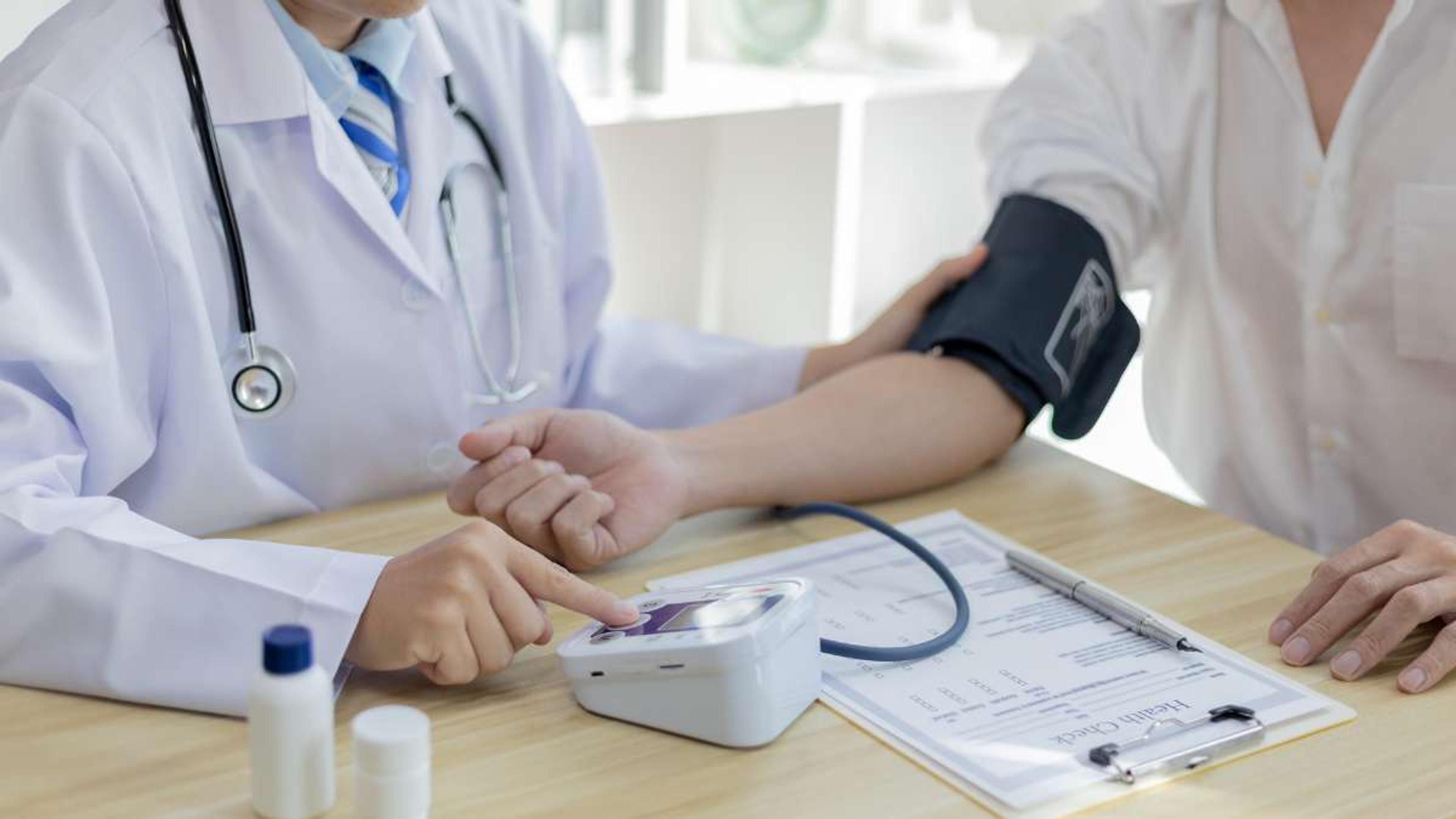
What is high blood pressure?
High blood pressure, also known as hypertension, is when your heart works too hard to pump blood. Imagine your blood vessels are like highways, and blood is the traffic moving through them. Sometimes, the pressure of this blood against the vessel walls can get too high, just like traffic congestion. This is what we call high blood pressure. So, your heart has to work a little harder than it should to pump blood.
You might have heard of two numbers used to describe it - 120/80. The first number (systolic pressure) is when your heart beats, and the second number (diastolic pressure) is when it rests between beats.
High blood pressure might not make you feel sick, which is why it's often called a "silent killer" condition. But over time, it can lead to serious health troubles like heart disease, stroke, and kidney issues. The good news is that you can take action.
So, if you're on the highway of health, let's keep the blood pressure traffic flowing smoothly! 🚗🚦.
The impact of diet on blood pressure
Your diet can play a significant role in the health of your blood pressure. Foods rich in fruits, vegetables, and whole grains can act like high-octane fuel, helping to keep your blood pressure in check. On the flip side, too much red meat and salty treats can rev up your blood pressure by clogging up your system. So remember, what you put on your plate directly impacts pressure, influencing your heart's journey down the road of wellness.
Following a vegan diet can be beneficial for you in many ways. It will help you follow a diet with more fiber and less saturated fat, helping keep your arteries clear. Too much red meat or dairy can raise the blood pressure due to their high salt and fat content. Many studies show plant-based diets as healthy diet options that help drop both systolic and diastolic blood pressure numbers down.
However, adding just a little meat or dairy to a mostly plant-based menu can still be beneficial for maintaining normal blood pressure.
The Benefits of a Vegan Diet for High Blood Pressure
A vegan diet offers several benefits for high blood pressure management such as lower intake of saturated fats, higher consumption of fiber-rich food, increased potassium intake, reduced sodium intake, and the impact of reducing meat and dairy consumption.
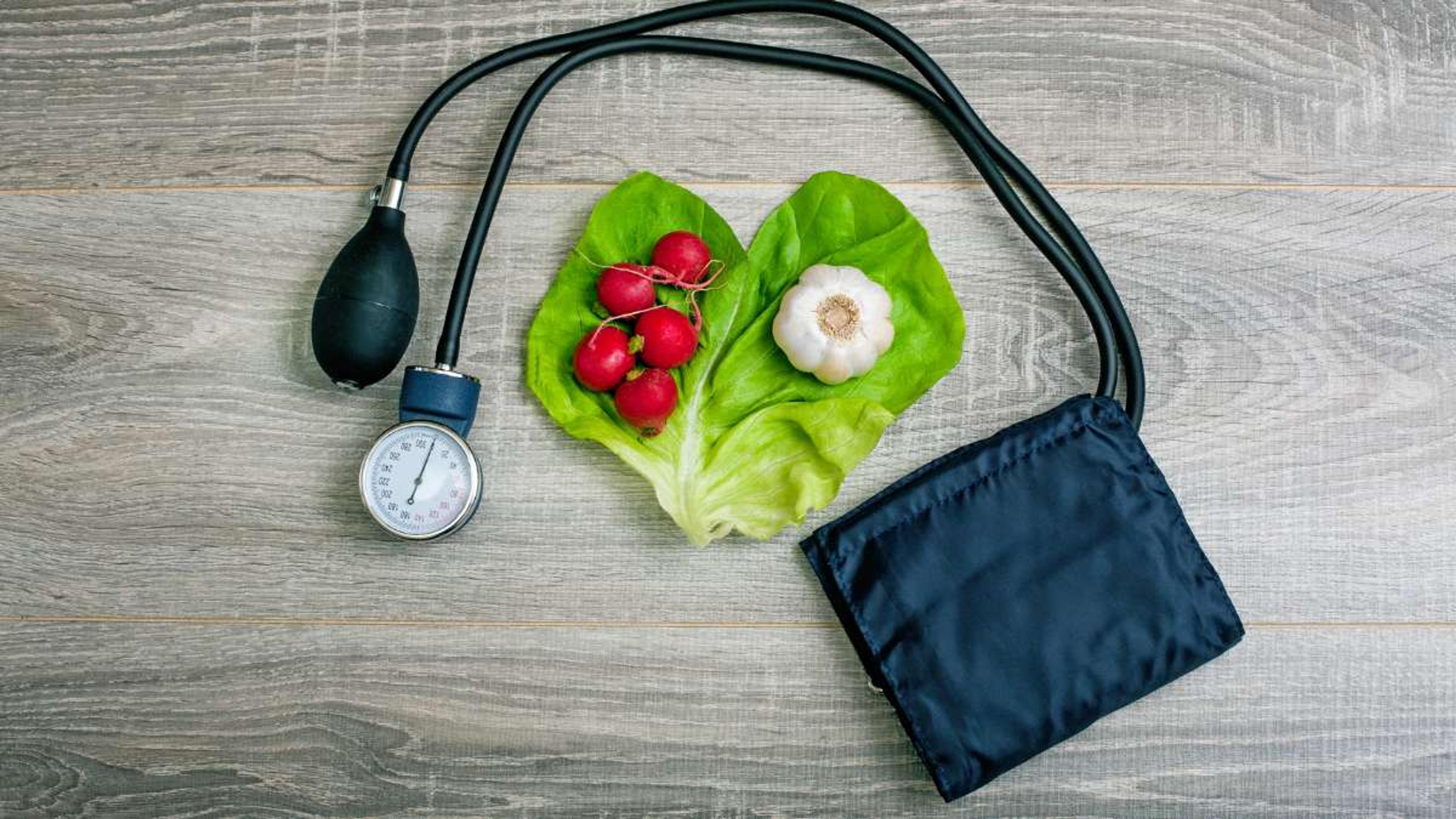
Lower intake of saturated fats
Steering clear off meat consumption translates to taking in less saturated fat. This type of fat is not good for your health. It may push up your blood pressure. A vegan diet replaces meats with plant foods.
These have little to no saturated fat. So, they are better for controlling blood pressure. Cutting down the amount of this bad fat helps keep you nurture the well-being of your heart and blood vessel health over time.
Higher intake of fruits and vegetables
Consuming a higher intake of fruits and vegetables is a key benefit of following a vegan diet to manage high blood pressure. Fruits and vegetables are rich in essential vitamins, minerals, antioxidants and high fiber and can help with lower blood pressure and protecting the heart from heart attacks/heart failure.
They are also low in sodium, which is important for reducing blood pressure levels. Additionally, fruits and vegetables provide dietary fiber, which has been shown to have a positive impact on blood pressure regulation.
Including a variety of colorful fruits and vegetables in your meals can significantly contribute to maintaining healthy blood pressure levels.
Increased consumption of potassium
Increasing your consumption of potassium can have a positive impact on your blood pressure. Potassium is an important mineral that helps regulate blood pressure by balancing the effects of sodium in the body.
Adults with high blood pressure are often advised to increase their potassium intake through diet. Plant-based diets, such as a vegan diet, tend to be higher in potassium due to their emphasis on fruits, vegetables, legumes, and whole grains.
Including foods like bananas, spinach, sweet potatoes, and avocado in your meals can provide you with a good amount of potassium and help lower your blood pressure naturally.
Reduced sodium intake
Studies have shown that diets low in sodium are associated with lower blood pressure levels. This is because sodium is a mineral that plays a role in fluid balance and blood pressure regulation. When we consume too much sodium, it can lead to an increase in blood volume and water retention, putting extra strain on the heart and blood vessels. This can result in higher blood pressure levels. By reducing sodium intake, we can help protect against high blood pressure and improve heart health.
Combining reduced sodium intake with a plant-based diet, which is typically low in sodium, can further lower both systolic and diastolic blood pressure. So, it's important to be mindful of the amount of salt we consume to maintain a healthy blood pressure level.
Impact of reducing meat and dairy consumption
Plant-based diets, such as a vegan diet, are naturally low in saturated fat and cholesterol, making them a healthier choice for blood pressure regulation. Vegetarian diets have been associated with lower systolic blood pressure in particular.
On the other hand, reducing meat and dairy consumption can have a significant impact on blood pressureas you lower your intake of saturated fat and cholesterol, both of which have been linked to high blood pressure, therefore the potential risk of strokes and cardiovascular disease.
This is important because arterial hypertension is the most common risk factor for cardiovascular diseases. Making the choice to reduce meat and dairy consumption can contribute to better management of high blood pressure and overall heart health.
The DASH Diet vs. a Vegan Diet for Blood Pressure Management
The DASH diet is a popular dietary approach that focuses on reducing sodium intake and increasing the consumption of fruits, vegetables, whole grains, lean proteins, and low-fat dairy products.
A vegan diet, on the other hand, eliminates all animal products and emphasizes plant-based foods. When comparing the two for blood pressure management, research suggests that both diets can be effective in lowering blood pressure.
However, a vegan diet may offer additional benefits due to its lower saturated fat content and higher intake of potassium-rich foods like fruits and vegetables.
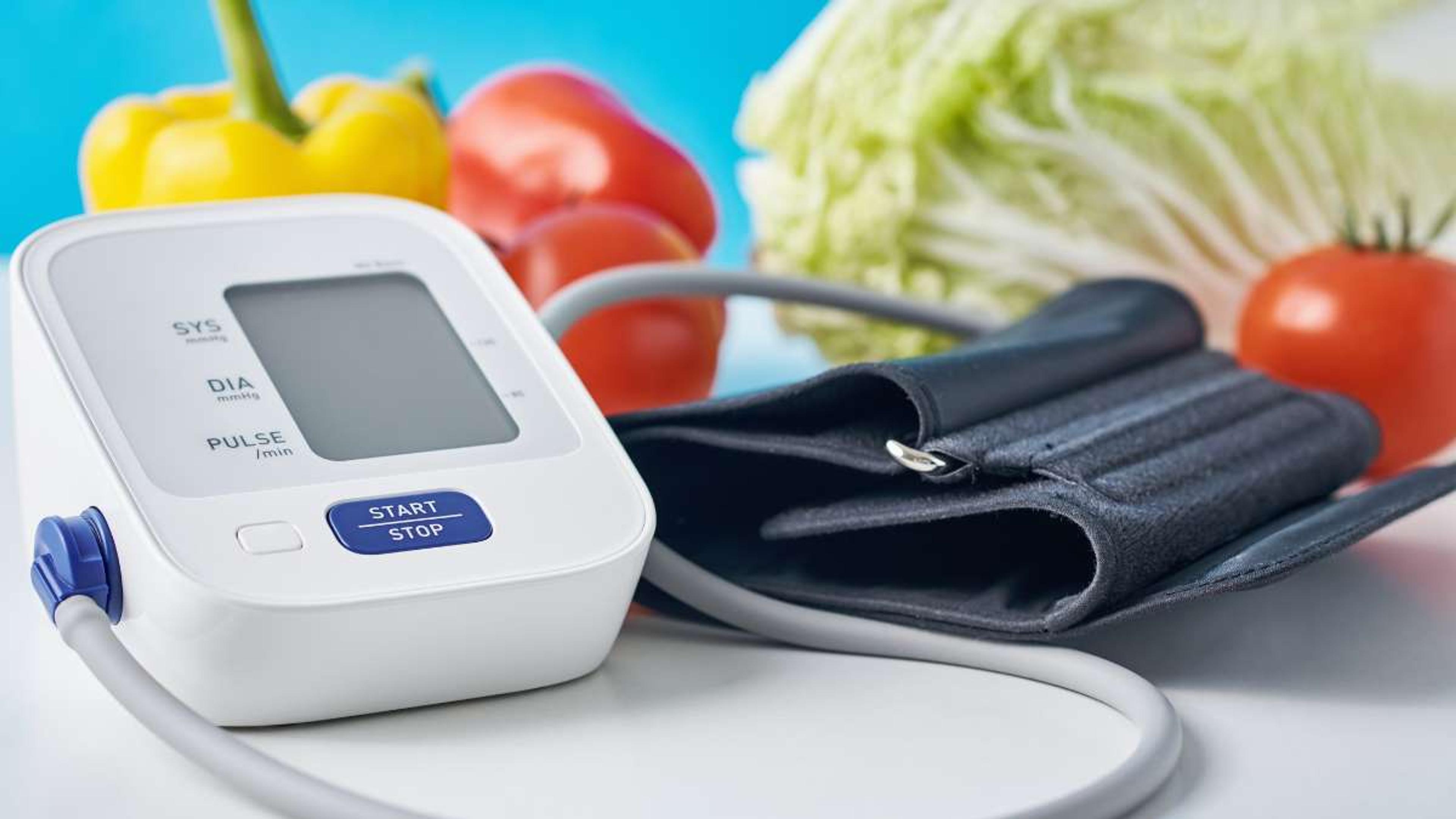
What is the DASH diet?
The DASH diet, short for Dietary Approaches to Stop Hypertension, is a healthy eating plan specifically designed to prevent or treat high blood pressure. It emphasizes the consumption of fruits, vegetables, whole grains, low-fat dairy products, poultry and fish.
The diet also encourages limiting sodium (salt), saturated fat and added sugars in order to lower blood pressure levels. Health professionals widely recognize the DASH diet as an effective and beneficial way to improve overall health and manage hypertension.
Comparing the DASH diet and a vegan diet for blood pressure control
Both the DASH diet and a vegan diet are effective in managing blood pressure. These two diets vary in certain aspects, but they share the goal of reducing high blood pressure.
DASH Diet
- The DASH diet emphasizes a balance of fruits, vegetables, whole grains, and legumes, while still allowing some animal products such as poultry, fish, and low-fat dairy products. While it encourages reducing red meat intake, animal products are still included in moderate amounts.
- The DASH recommends healthy fats like olive oil, nuts, and seeds while limiting saturated and trans fats.
- This diet focuses on increasing potassium, calcium, and magnesium intake, which can help regulate blood pressure.
- The DASH diet recommends reducing sodium intake, particularly from processed foods, to support blood pressure reduction.
Vegan Diet
- This diet excludes all animal products and by-products, relying solely on fruits, vegetables, whole grains, legumes, nuts, and seeds.
- A vegan diet typically avoids saturated and trans fats by default due to the absence of animal products, but it also emphasizes sources of healthy fats from plant-based oils, avocados, and nuts.
- A vegan diet is naturally high in potassium, magnesium, and dietary fibre due to its emphasis on whole plant foods, which can contribute to improved blood pressure management.
- While a vegan diet can include processed plant-based foods, an emphasis on whole, unprocessed foods can help limit sodium intake, contributing to better blood pressure control.
- A meat-free diet can lower blood pressure by up to 55% in individuals managing hypertension.
Both the DASH diet and a vegan diet have the potential to lower blood pressure due to their emphasis on whole foods, plant-based options, and nutrient-rich choices. However, considering the differences, a vegan diet may have a slight advantage for blood pressure management due to its complete avoidance of animal products, inherently lower saturated fat content, and higher consumption of potassium-rich foods.
Nonetheless, individual preferences, health conditions, and nutritional needs should be considered when choosing the most suitable dietary approach for blood pressure management. It's advisable to consult with a healthcare professional or registered dietitian before making significant dietary changes.
Tips for Incorporating a Vegan Diet to Manage Blood Pressure
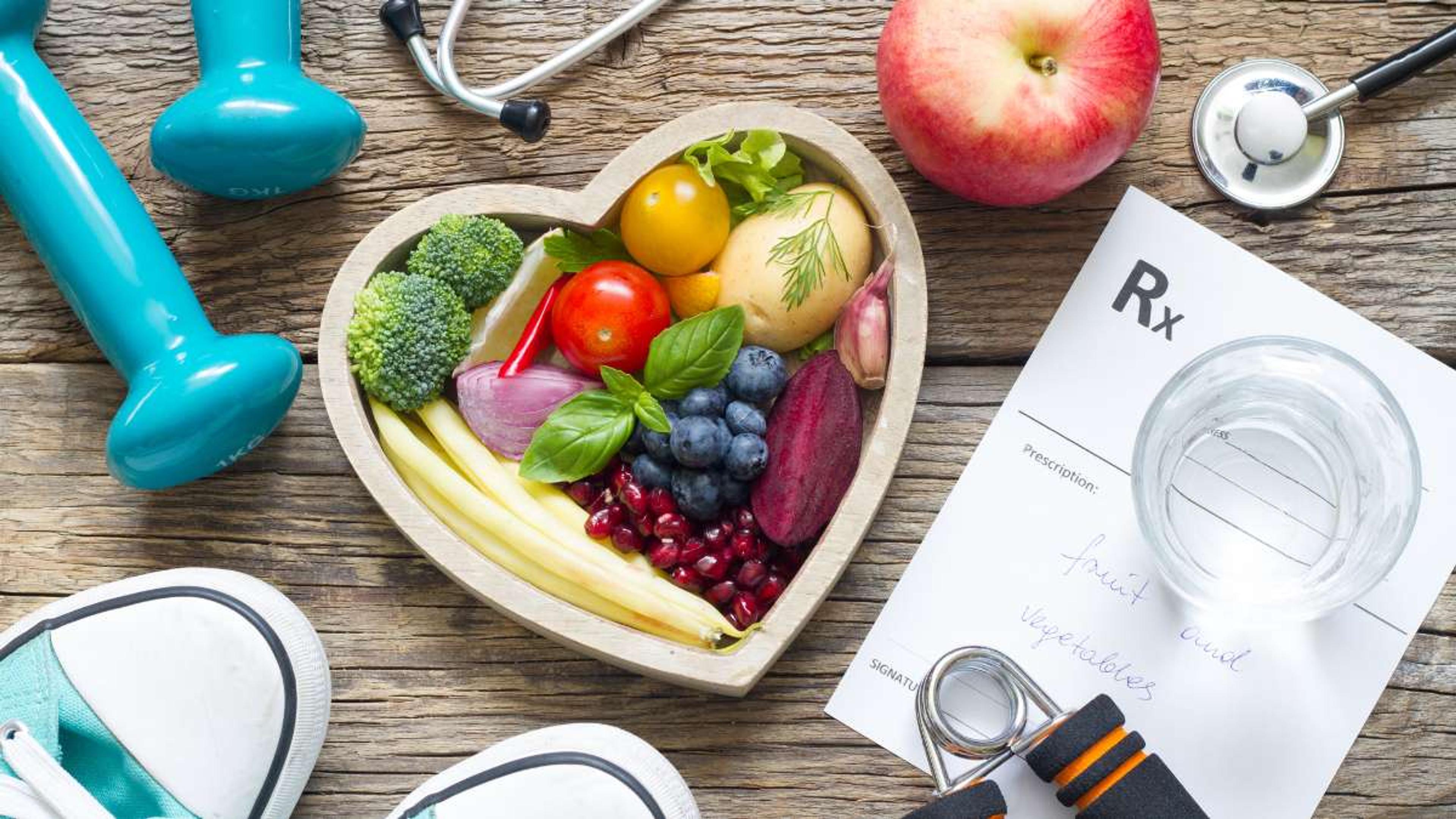
Prioritize whole plant-based foods
Plant-based diets are beneficial for managing high blood pressure. To effectively incorporate a vegan diet to help control blood pressure, it's important to prioritize whole plant-based foods. Here are some tips:
- Eat plenty of fruits and vegetables: These provide essential nutrients and fiber that support lower blood pressure.
- Choose whole grains: Opt for options like brown rice, quinoa, and whole wheat bread which contain more fiber and can help regulate blood pressure.
- Include legumes in your meals: Foods like beans, lentils, and chickpeas are rich in protein and fiber, promoting healthy blood pressure levels.
- Consume nuts and seeds: These provide healthy fats and can contribute to overall heart health.
- Use herbs and spices instead of salt: This reduces sodium intake which is linked to high blood pressure.
Cooking and Preparation Tips
Cooking and preparing vegan meals can be easy and enjoyable. Here are some tips to get you started:
- Use flavorful herbs and spices: Experiment with different herbs and spices like basil, oregano, cumin, turmeric, and paprika to add taste to your dishes without relying on salt or unhealthy fats.
- Try new cooking methods: Instead of frying foods in oil, try baking, grilling, steaming, or sautéing them using a small amount of vegetable broth or water.
- Opt for whole grains: Choose whole grain options like brown rice, quinoa, whole wheat pasta, and whole grain breads to increase fiber intake and promote heart health.
- Get creative with plant-based protein sources: Include legumes like chickpeas, lentils, and black beans in your recipes for a good source of protein. Tofu, tempeh, and seitan are also great options.
- Incorporate plenty of fruits and vegetables: Make sure to include a variety of colorful fruits and vegetables in your meals for added nutrients and antioxidants and to try preparing different plant-based diets.
- Plan ahead: Plan your meals for the week in advance to ensure you have all the necessary ingredients on hand. This will help you stay organized and avoid last-minute unhealthy food choices.
- Explore new recipes: Explore vegan cookbooks or online recipe websites for inspiration and try out new dishes that you may not have considered before.
Limit processed foods and added sugars
A key aspect of managing high blood pressure is to limit processed foods and added sugars in your diet. Processed foods often contain unhealthy levels of sodium, which can increase blood pressure.
Additionally, added sugars can contribute to weight gain and inflammation, both of which are risk factors for hypertension. Instead, focus on consuming whole plant-based foods that are naturally low in sodium and free from added sugars.
By doing so, you can help reduce your overall intake of harmful ingredients and promote better heart health.
Other Lifestyle Changes to Lower Blood Pressure
To lower blood pressure, there are other lifestyle changes you can make in addition to following a vegan diet. These changes include:
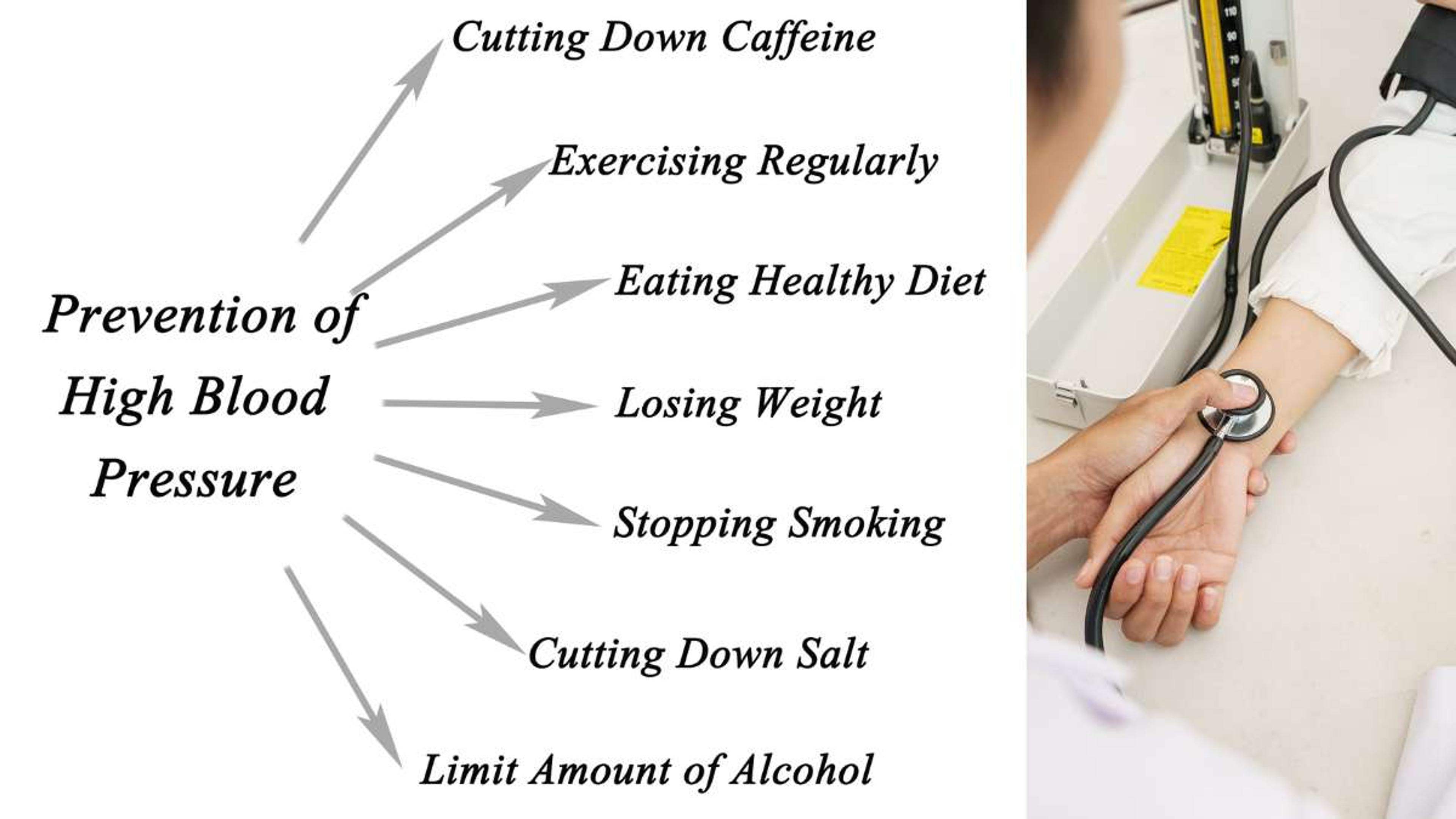
- Engage in regular physical activity: Exercise helps to lower blood pressure and improve overall cardiovascular health. Aim for at least 30 minutes of moderate-intensity exercise most days of the week.
- Maintain a healthy weight: Losing excess weight can significantly reduce blood pressure levels. Focus on a combination of healthy eating and regular exercise to achieve and maintain a healthy weight.
- Limit alcohol consumption: Excessive alcohol intake can raise blood pressure. It is recommended to limit alcohol consumption to moderate levels, which means no more than one drink per day for women and two drinks per day for men.
- Quit smoking: Smoking damages blood vessels and increases the risk of high blood pressure and heart disease. Quitting smoking is essential for improving overall cardiovascular health.
- Reduce stress levels: Chronic stress can contribute to high blood pressure. Practice stress-reducing techniques such as deep breathing exercises, meditation, or engaging in hobbies that help you relax.
- Get enough sleep: Lack of quality sleep has been linked to higher blood pressure levels. Aim for 7-9 hours of quality sleep each night to help regulate blood pressure.
Conclusion
In conclusion, adopting a vegan diet can have significant benefits for managing high blood pressure. By reducing saturated fats, increasing fruit and vegetable intake, and minimizing sodium consumption, individuals may experience lower blood pressure levels.
While further research is needed to understand the full extent of these effects, incorporating plant-based foods into your diet can be a valuable step towards improving cardiovascular health.
FAQs
1. Can a vegan diet help lower blood pressure?
Yes, a vegan diet that is high in fruits, vegetables, whole grains, and legumes can help lower blood pressure due to its nutrient-rich and low-sodium nature.
2. Are there any specific foods I should include in my vegan diet for better blood pressure management?
Including foods like leafy greens (such as spinach and kale), berries, nuts, seeds, and plant-based sources of omega-3 fatty acids (like flaxseeds or chia seeds) can support healthy blood pressure levels.
3. Is it necessary to take medication for high blood pressure if following a vegan diet?
If you have been prescribed medication for high blood pressure by a healthcare professional, it's important to continue taking it as directed. However, adopting a vegan diet may contribute to better overall heart health.
4. Can switching to a vegan lifestyle improve my overall cardiovascular health?
Adopting a vegan lifestyle can have positive impacts on cardiovascular health by reducing the risk factors associated with heart disease such as high cholesterol levels, obesity, and elevated blood pressure.

